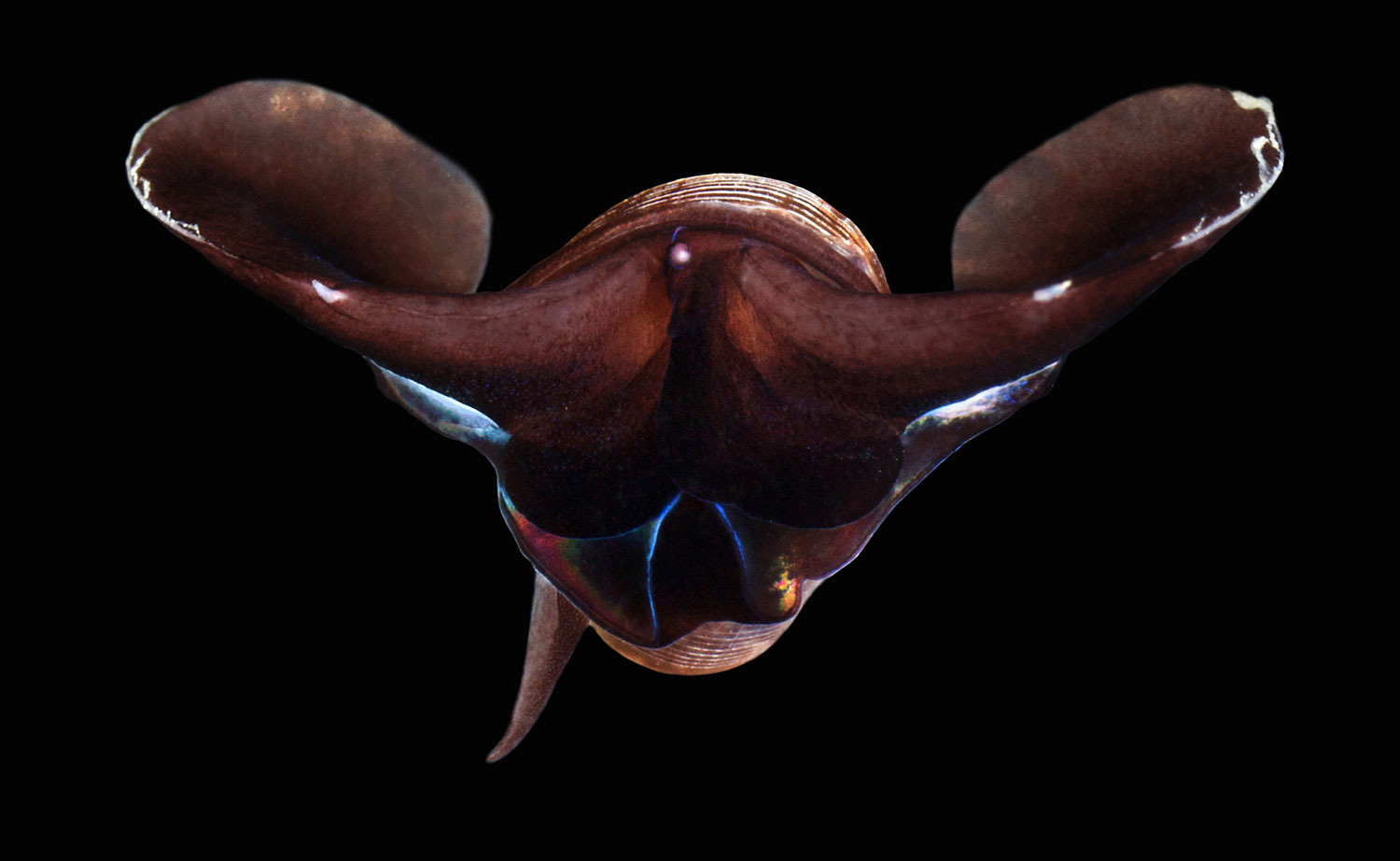
Climate change has claimed its latest victim: Limacina helicina, a planktonic, predatory sea snail that’s a member of the taxonomic group more commonly known as sea butterflies. (The name is derived from the wing-like lobes the tiny creatures use to get around.) In a study recently published in journal Proceedings of the Royal Society B, a group of scientists from the National Oceanic and Atmospheric Administration (NOAA) and Oregon State University have found that the Pacific Ocean’s decreasing pH—its acidifying, in other words—is dissolving L. helicina’s thin shells.
The researchers collected sea butterfly samples from 13 sites along the Pacific coast (between Washington and southern California), going over each with a scanning electron microscope. More than half of the shells (53%) from onshore individuals showed signs of “severe dissolution damage,” while 24% of offshore individuals suffered dissolution damage. The study’s principal investigator, Dr. Nina Bednaršek of NOAA, described the affected L. helicina shells as having a texture not unlike “cauliflower” or “sandpaper.”
According to the paper, there was a “strong positive correlation” between the proportion of sea butterflies with severe shell dissolution damage and “the percentage of undersaturated water” near the ocean’s surface. The researchers conclude “shell dissolution owing to [human-caused ocean acidification] has doubled in near shore habitats since pre-industrial conditions across this region and is on track to triple by 2050,” a truly grim prognostication. Moreover, the broader implications for ecosystem are unclear, as damaged shells make it harder for L. helicina to fight infections, stay buoyant, and protect themselves from predators.
More Must-Reads from TIME
- Cybersecurity Experts Are Sounding the Alarm on DOGE
- Meet the 2025 Women of the Year
- The Harsh Truth About Disability Inclusion
- Why Do More Young Adults Have Cancer?
- Colman Domingo Leads With Radical Love
- How to Get Better at Doing Things Alone
- Michelle Zauner Stares Down the Darkness
Write to Bijan Stephen at bijan.stephen@gmail.com